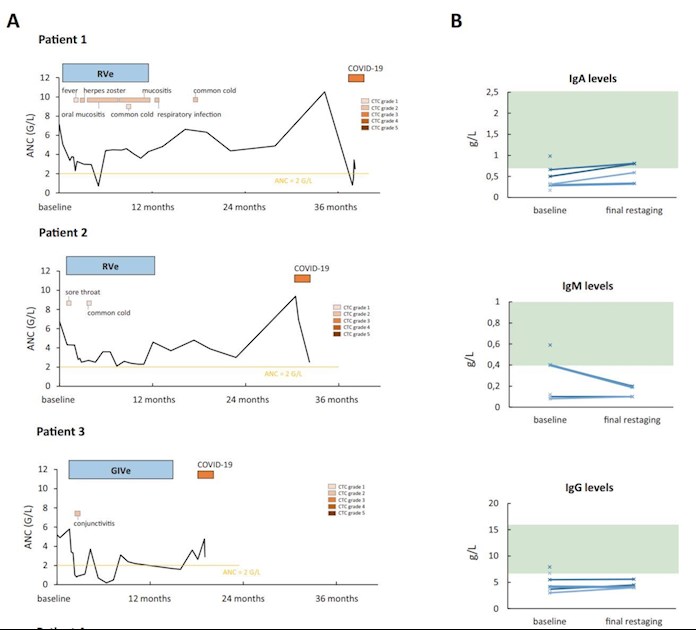New report from Europe published in Nature.
"Between March and April 2020 seven patients within the GAIA/CLL13 trial developed COVID-19, one in the CIT arm and six patients in the experimental treatment arms (Table 1). The baseline characteristics show a median age of 61 years (range 52–78) and in accordance with the inclusion criteria of the study only few comorbidities and no TP53 aberrations were documented. All but one patient had completed study treatment at the time point of COVID-19 diagnosis with a median time after end of treatment of 22 (range 1–30) months. All seven patients were tested positive for SARSCoV-2 by PCR collected from nasopharyngeal swabs. While one patient was isolated in home quarantine, six of seven patients (85.7%) had to be hospitalized and two (28.6%) required treatment on an intensive care unit (ICU), only one patient required invasive mechanical ventilation (Table 1). Two patients died as a result of their SARS-CoV-2 infection, one 58-year-old patient (patient 4) after a prolonged treatment with mechanical ventilation (52 days) on an ICU and a 78-year-old patient (patient 7) who decided against ICU treatment and was treated with best supportive care."
"To our knowledge, we here report the first analysis of COVID-19 in CLL patients receiving venetoclax-based combinations and CIT as first-line treatment within a large randomized controlled trial. This analysis suggests an increased rate of COVID-19 as well as an increased hospitalization rate in fit patients with CLL. Despite their various CLL-associated immune defects, the majority of patients recovered from COVID-19. As this is an ongoing clinical trial, a benefit-risk assessment is continuously performed by an independent data and safety monitoring board (DSMB). At this time the DSMB had no objection against continuation of the trial or subjects to continue treatment as allocated."

